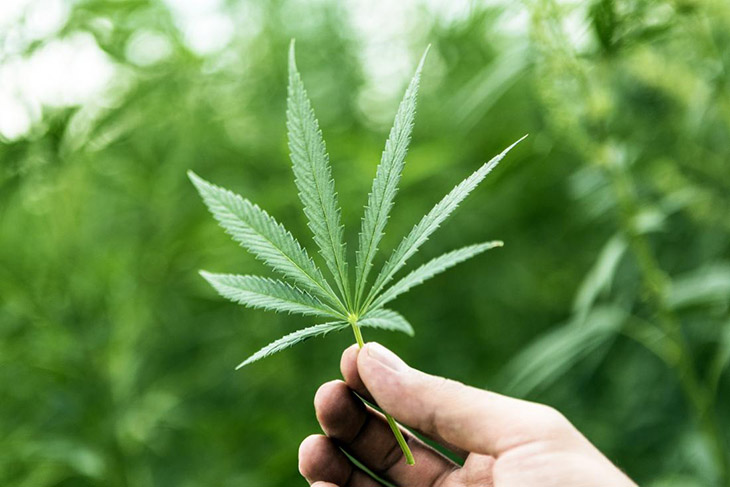
Medical News Today
Unlocking the therapeutic potential of marijuana — a substance with a rich history of medicinal use, yet only recently gaining recognition for its ability to soothe symptoms and increase the quality of life for those suffering from various diseases and conditions. Join us as we delve into the most recent research to learn how marijuana is proving to be an effective tool in the fight against diseases.
When Did People First Start Using Medical Cannabis?
The earliest recorded use of marijuana for medicinal purposes dates back to 2737 BC by the Chinese emperor Shen Nung. The emperor documented the plant’s effectiveness in treating various ailments, including rheumatism and poor memory. In ancient India, marijuana was used as a medicinal herb as early as 1000 BC. According to archeological findings, medical cannabis was also popular in ancient Egypt, Greece, and Rome. Back then, one could only get weed from the local healer, while today, you can easily buy THC seeds online in a matter of a click.
What Diseases Can Marijuana Help With?
Scroll down to see the list of most common diseases medical cannabis can aid with:
1. Chronic Pain. One of the most well-established therapeutic benefits of marijuana is its ability to alleviate chronic pain. Chronic pain is a common condition that affects millions of people worldwide, and a wide range of disorders, such as multiple sclerosis, and cancer, can cause it. Marijuana effectively reduces chronic pain by interacting with the body’s endocannabinoid system, which regulates pain and other physiological processes.
2. Epilepsy. Another well-established therapeutic benefit of marijuana is its ability to treat epilepsy. A neurological disorder characterized by seizures, epilepsy affects over 50 million people worldwide. Many studies have shown that marijuana can reduce the frequency and severity of attacks in people with that disease.
3. Multiple Sclerosis. Multiple sclerosis is also known as MC. It is a chronic, progressive neurological disorder that affects the central nervous system. Symptoms of MS can include muscle spasms, stiffness, and weakness. Several studies have shown that marijuana can alleviate the symptoms of MS by reducing muscle spasms and improving muscle control.
4. Glaucoma. Unfortunately, glaucoma is a leading cause of blindness worldwide. Marijuana has been shown to lower intraocular pressure, the disease’s key symptom, which can help prevent glaucoma’s progression down the road.
5. Cancer. Marijuana has been shown to have anti-tumoral properties, which means it can inhibit the growth and spread of cancer cells. Studies have shown that certain compounds in marijuana, such as THC and CBD, can hinder the development of specific cancer cells, such as lung and breast cancer. Apart from shopping at the local dispensaries, you can also buy THC seeds for sale to grow your favorite strains independently.
6. PTSD. PTSD, or post-traumatic stress disorder, is a condition that may occur in individuals who have experienced or witnessed a traumatic event. Symptoms of PTSD include flashbacks, nightmares, and anxiety. Studies have shown that marijuana can reduce symptoms of PTSD by reducing stress and promoting relaxation.
7. Depression and Anxiety. Research has demonstrated that cannabis may have the ability to alleviate symptoms of depression and anxiety. It can also stimulate creativity and social engagement while reducing stress.
8. HIV/AIDS. HIV and AIDS are severe conditions that affect the immune system, making it difficult for the body to fight off infections. Studies have shown that marijuana can alleviate symptoms of HIV/AIDS by reducing pain, nausea, and vomiting.
9. Inflammatory Bowel Disease. Inflammatory bowel disease, or IBD, encompasses a range of inflammatory disorders that target the gastrointestinal tract, including Crohn’s disease and ulcerative colitis. Studies have demonstrated that cannabis can be beneficial in reducing inflammation in the gut and easing symptoms associated with IBD, such as abdominal discomfort, diarrhea, and lack of appetite.
10. Alzheimer’s Disease. Alzheimer’s is a degenerative brain disorder affecting memory, cognition, and behavior. Studies have suggested that marijuana may lower the risk of Alzheimer’s by decreasing inflammation in the brain and blocking the formation of amyloid plaques linked to the onset of the disease.
It is important to note that marijuana is not a cure-all and may not be effective for everyone, so consulting with your doctor always comes first. Additionally, as marijuana is still illegal under federal law in the United States, it is a good idea to look for legislative regulations in your state. Once everything is settled, and both doctor and state are optimistic about your consumption, you can order auto flower seeds high THC or shop at the local dispensaries using a prescription.
How Cannabis Affects Health?
Continue reading to uncover the impact of cannabis on the well-being of your body’s systems and learn how it can enhance your health in various ways:
1. Cardiovascular health. Studies have shown that marijuana can have a positive effect on cardiovascular health. The active compounds in marijuana, such as CBD, can help to decrease inflammation and enhance blood flow throughout the body. This can help to reduce the risk of heart disease, stroke, and other cardiovascular conditions.
2. Metabolic system. Marijuana has been shown to have a positive effect on metabolic health. Studies reported that marijuana use could improve insulin sensitivity and reduce body mass index (BMI). Additionally, marijuana use is associated with a lower risk of type II diabetes.
3. Neurological system. Studies have shown that marijuana can help to reduce the symptoms of conditions such as multiple sclerosis, Alzheimer’s disease, and Parkinson’s disease. Additionally, marijuana has neuroprotective effects, which can help to reduce the risk of developing neurological conditions.
4. Respiratory health. Despite the common belief that marijuana smoke is harmful to the lungs, some studies suggest that marijuana smoke does not cause lung cancer and can positively affect respiratory health. CBD, one of the compounds found in marijuana, has been shown to have anti-inflammatory effects, which can help to reduce inflammation in the lungs and improve respiratory function. The highest THC seeds containing CBD might not only soothe the symptoms of inflammation but also provide you with a potent high.
5. Gastrointestinal health. Marijuana has a positive effect on gastrointestinal health. Studies have shown that marijuana can help to decrease inflammation in the digestive tract, which can help to soothe symptoms of inflammatory bowel disease (IBD) such as abdominal pain, diarrhea, and loss of appetite.
6. Mental health. From stress to anxiety and PTSD, marijuana has positive effects on mental health and is widely used in soothing the effects of multiple mental conditions. Additionally, cannabis has anti-anxiety properties, promoting relaxation and reducing feelings of stress.
Conclusion
All in all, marijuana is excellent but not a panacea. Thus, It’s essential to seek the advice of a healthcare professional before using marijuana for therapeutic purposes and to use it responsibly and in accordance with established guidelines.









































